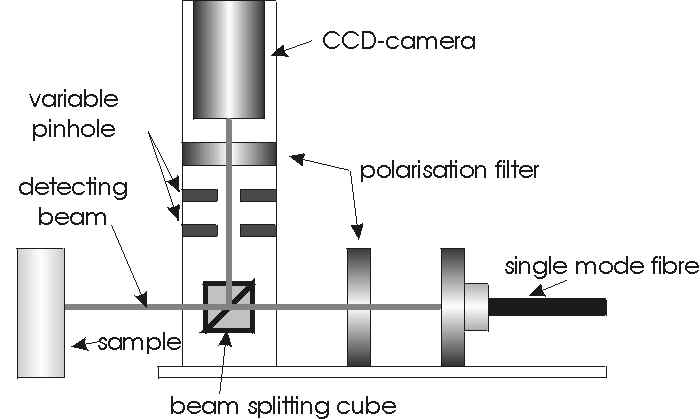Multispeckle Correlation Spectroscopy
Multispeckle correlation spectroscopie (MSCS) is a method where dynamic light scattering is performed simultaneously at multiple points in the speckle pattern (see DLS) to increase statistics and reduce noise. On the other hand it is an easier possibility to measure highly concentrated (nonergodic) samples (colloidal glass). For this purpose the whole speckle pattern is detected by an area detector (ccd camera). The camera picture is digitized and the scattering intensity of the speckles are seperately recorded and correlated. One gets the intermediate scattering function by averaging these correlation functions. MSCS has a dynamic range of 0,1s up to 105s.
The apparatus has a modified detection unit to be able to measure DLS and MSCS at different angles simultaneously:
The apparatus has a modified detection unit to be able to measure DLS and MSCS at different angles simultaneously:

The detection beam is splitted by a beam splitting cube in two halfs: One of these beams is coupled in a single mode fibre (DLS) and the other one is detected with a ccd camera after passing two pinholes. The absolute intensity of both beams can be controled by polarisation filters.

